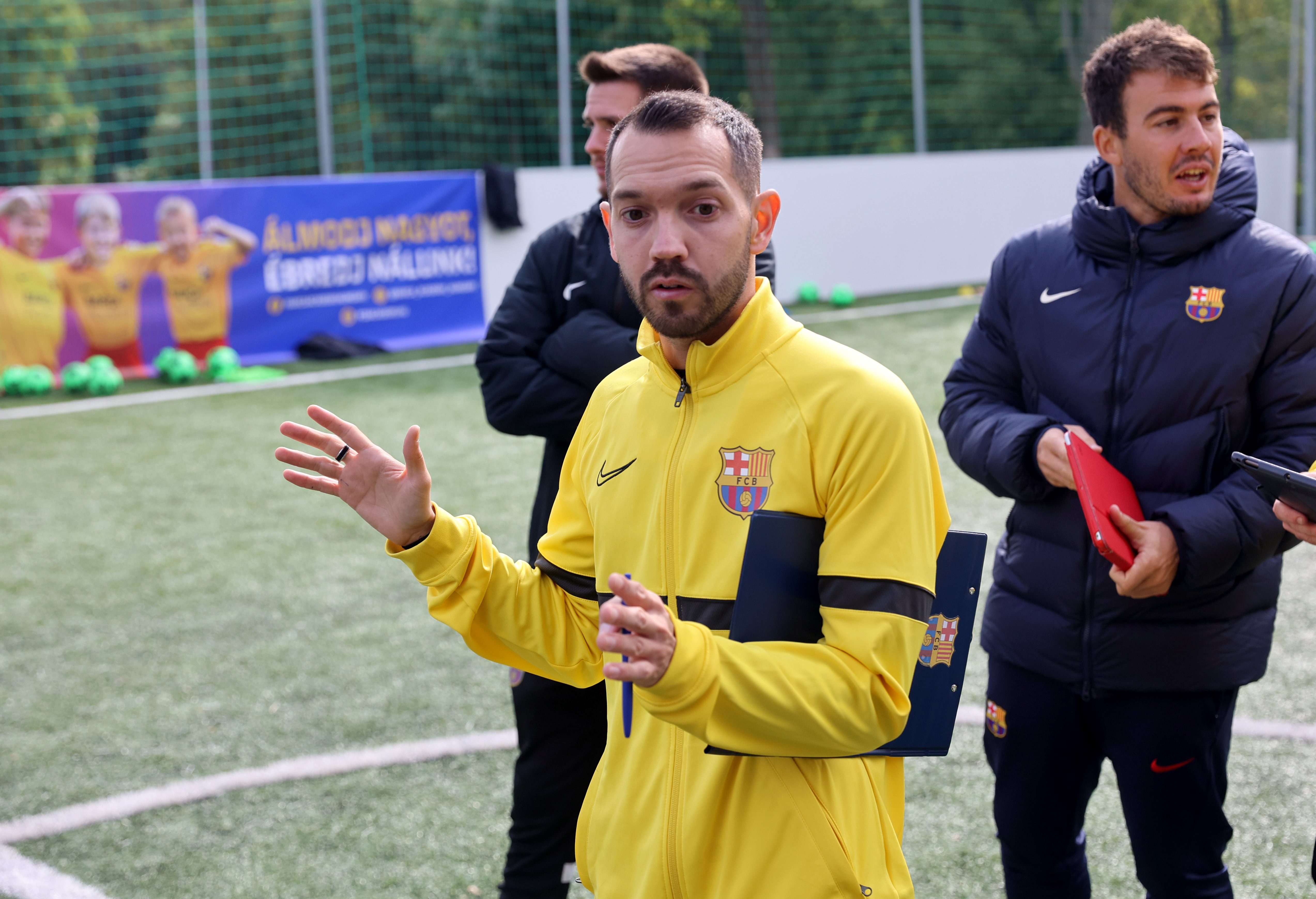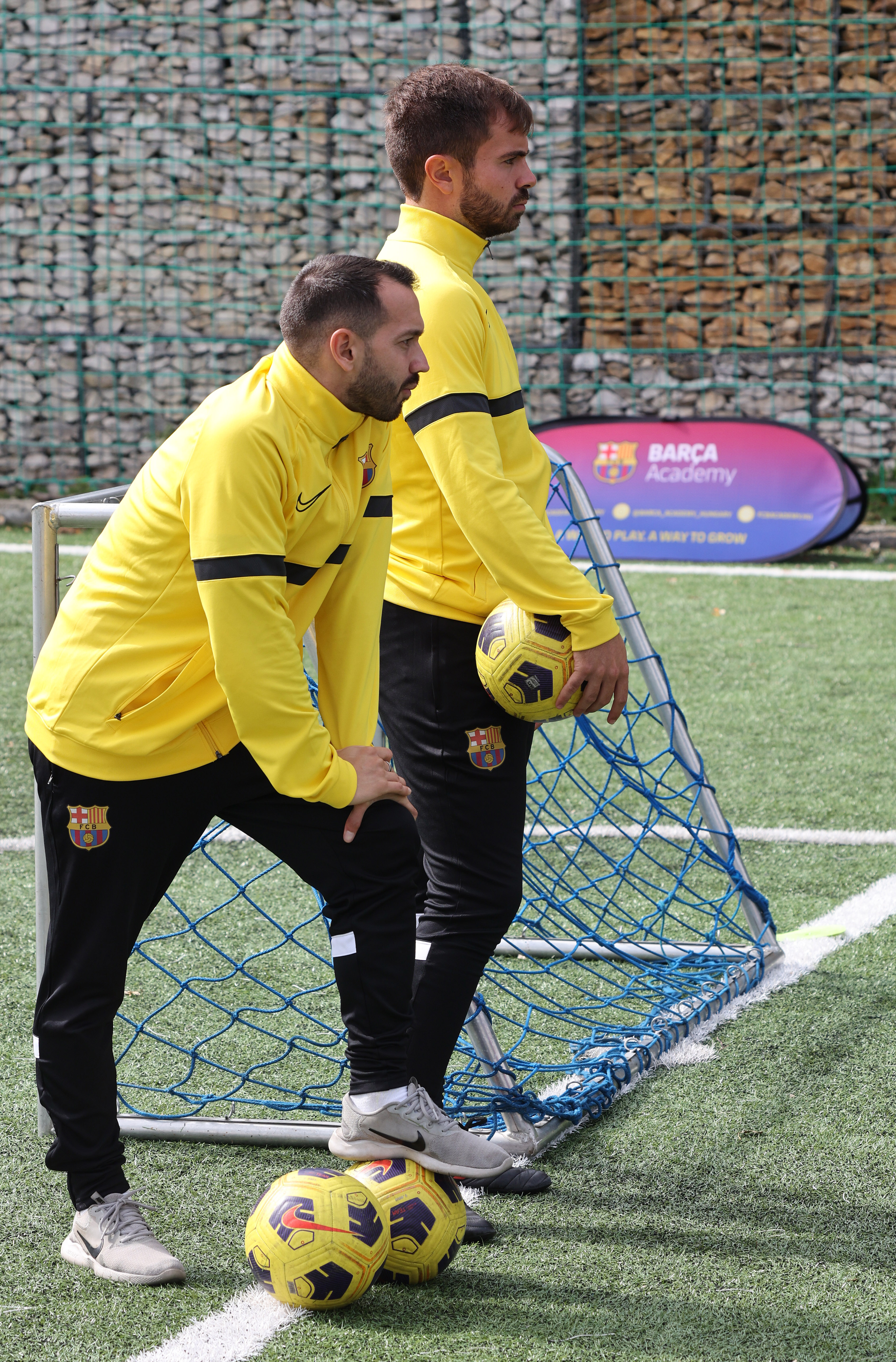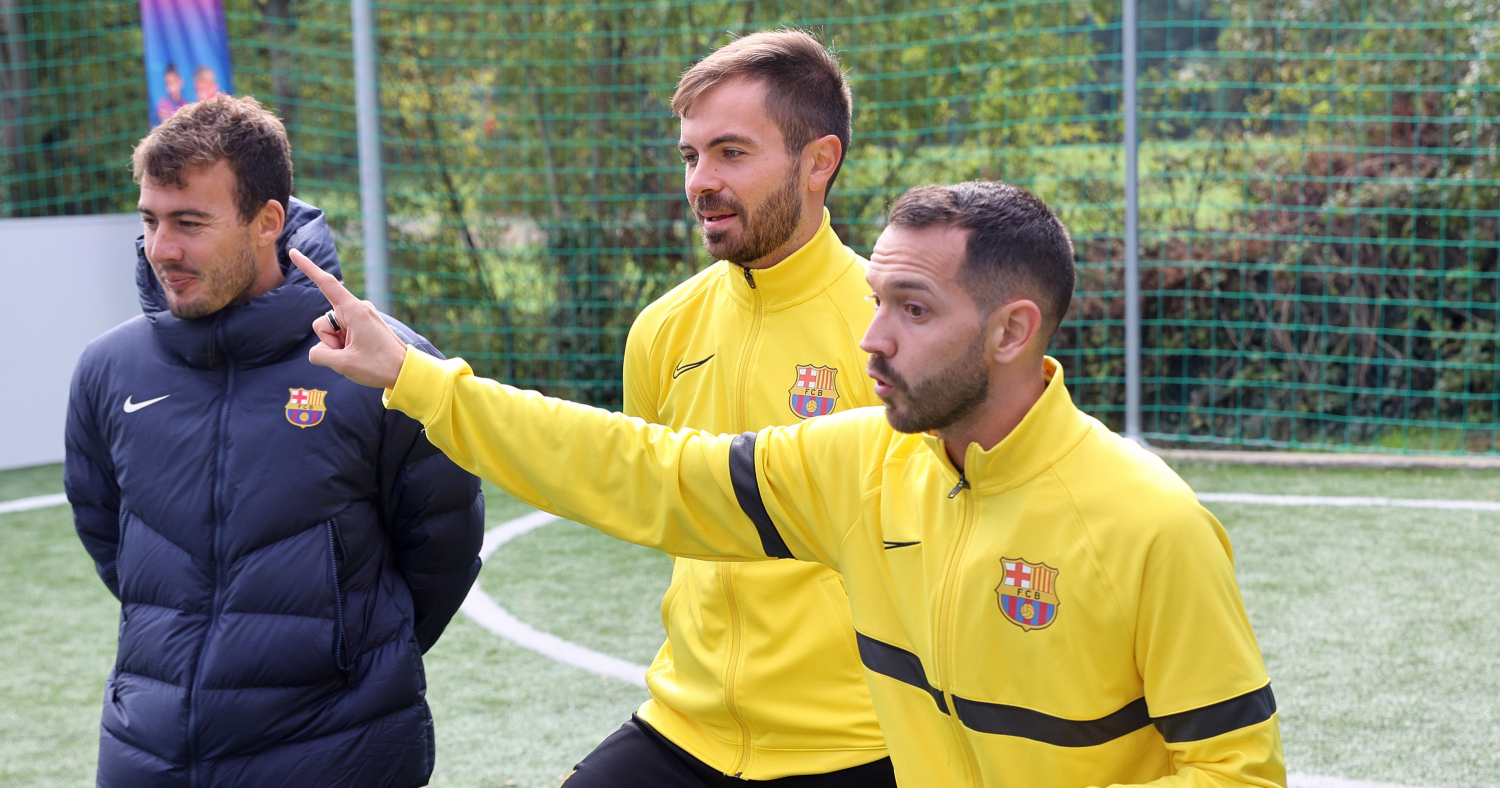- Let's cut to the chase: how do you feel in Hungary? Have you managed to pick up the rhythm of Budapest?
- Definitely yes! The city and the country are great, the people are nice, it feels good to have new experiences. I live in Budapest, but I've also been to Lake Balaton, among other places, trying to get to know this beautiful part of Europe. I have coached in the United States before, but the years there left a completely different impression on me.
- So this is not your first adventure abroad, so you have experience as a foreign legionnaire.
- That's right! Budapest is my second posting after the USA. In the US, it was an experience to be involved in the start-up and development of the local Barca academy, and I brought that experience with me to Hungary. The US is a fantastic place, as is Hungary, but different qualities are needed here and overseas.
- When you were offered the opportunity, you must have weighed up the pros and cons. Why did you finally decide to move? What struck you most about the whole thing?
- My mandate in America was over, if I may say so, I had done my job. At the same time, I was keen to have another adventure abroad, so Budapest came into the picture, which is both closer to home and not expensive. I am very happy that my application was accepted, I feel this is a big step in my career!
- The Barca Academy Hungary is a relatively new project, only three years since the academy started its training in Hungary. You have experience in developing the academy system, having worked in a similar role in America. What were your expectations and long-term goals when you arrived in Budapest?
- First of all, I am very happy to be here. To be successful together requires a lot of collaboration and everyone needs to put in maximum effort, as this is the only way to make significant progress. I have not set any specific expectations, but I would like to see the young people succeed not only on the pitch, but also in life. This is also one of the main objectives of the Academy.
- After your arrival, you had to find a common voice with your new colleagues and with the boys, which is obviously a long process. How easy was that? What were the biggest challenges in the first days?
- I feel very comfortable in this respect, as everything went smoothly for me. No challenges at all! I feel comfortable and I've managed to settle in, which of course has a lot to do with my colleagues, who have taken me on board very quickly. Hungarians, as far as I know them, are open-minded people anyway. Every day I see feedback that helps me to change and to be even better.

- You had to be accepted by the children as well as your colleagues.
- True, but that was easy too. I had the players from the 2008 Blue team under my wing and it was a pleasure to work with them. Very talented kids make up that age group! I don't have a team at the moment, I'm just an assistant coach as I'm responsible for the new sports facility in Cold Kout and the training sessions there. What attracted me to the Hungarian project was not only the atmosphere, but also the facilities on the pitches, the quality of the other teams and, most recently, the idea of starting a women's section.
- Apart from the players, the coaches also have to have many qualities, one of which is to get the right motivation from the boys, and another is to pay attention to everything. Do you have any individual techniques you use to push the guys in training and matches? What advice do you give them off the field?
- Before every training session I have a short chat with the kids to see how they are doing. Maybe he's had a bad day, he didn't feel well at school and it shows in his training work: he doesn't run as much, he's not happy with the exercises. If I didn't know what was wrong with him, I wouldn't be able to do anything about it, but there is a chance that football could help him to regain his motivation and get him in a better mood. I give small speeches in the dressing room before matches, but not necessarily to motivate them, but to give them tactical instructions and take the pressure off their shoulders. I don't think the kids need any extra motivation, wearing the garnet and blue jersey gives them that.
- Winning is a very important goal in matches, but as you can tell from your words, the children's feelings are much more important.
- That's right! The most important thing is to put your heart on the field and do your best for the team. It's not the result that counts, it's the enjoyment and improvement. Without the latter you can lose motivation and not become a better footballer. Football is a game and the attitude of the children is essential. Here we try to appeal to the kids' feelings so that they go home with a good feeling after training and matches, even if the result is not what they want. Because, as I said, the result is only secondary.
- Barcelona also contributes a lot to the personal development of the coaches. Do you have a vision of where you want to go? What goals do you have with football? What motivates you the most?
- Right now I'm focused on Barca, I haven't really thought about my future. But I'll be honest: I feel completely comfortable here. I've grown up with Barcelona, I couldn't leave. For me, it's the only club in the world, and I'm motivated every day by the fact that I can train the next generation in the kit of the best team in the world. Sometimes I think about a career as a professional coach, but then I realise that this is where I really feel at home.

- At Barcelona, it is possible to attend training courses. Want to improve your skills?
- Of course! I currently hold a UEFA Pro coaching licence, which I obtained four years ago. I'm thinking about a higher degree, and there are also a number of courses available for us on the Barca Innovation Hub. They are paid, but they are very worthwhile if you want to improve. I would like to do a course called "Barca methodology".
- Can you tell us how you spend a day?
- In the mornings I usually write messages or emails that are part of my work. If I have time left, I go for a jog in Budapest and then I'm off to Hidegkút to prepare for training. The kids come to training in two bands, between 16.30 and 17.30 and 17.30 and 18.30. After the sessions I talk to the parents about the kids and football. I often meet friends in the evenings, and there are one or two matches on the weekends.
- How do you spend your free time? Have you ever been to a Hungarian match?
- Usually by watching matches. I wouldn't miss a Barcelona match for anything, and during the World Cup there's a match jam. Unfortunately, I haven't been to any Hungarian matches yet, but I'd definitely like to go to a few. Budapest is a very good place in this respect, as you can spend your time in a variety of ways. I often eat out with my friends, and the wide range of restaurants offers a great opportunity to do so.
- Speaking of food, how do you find Hungarian cuisine? Do you have a favourite dish?
- Of course I do! Gulyásleves (goulash soup) is second to none, especially in winter, when you need a hot meal to keep you warm.
- How do you see Spain's chances at the World Cup?
- It's a tricky question. The players have come into the World Cup from the middle of the season, so it's hard to say anything, and I wouldn't make any big predictions. I'm enjoying watching the games and I like what Luis Enrique is doing with the Spanish national team. They've made a great start to the tournament and deserve to win, but with so many good countries coming in with strong squads, it's a big question mark over how far Spain can go.
- The last time we qualified for the most important event in football was in 1986, in Mexico. In recent years, the national team has taken on the top teams, thanks in large part to Marco Rossi. How do you see the current state of Hungarian football, how much potential does it have?
- Hungarians have a good feel for the ball, based on historical experience. I see a lot of potential in them. Children and adults alike are passionate about football, which you can see when you go to a restaurant or bar. It's nice to see people have this attitude to the game and get so involved in football. I watched one game of the Hungarian team in the Nations League, and I can say from that that it is a very good place to develop, because the country is producing talented players.
Kristóf Bartha




